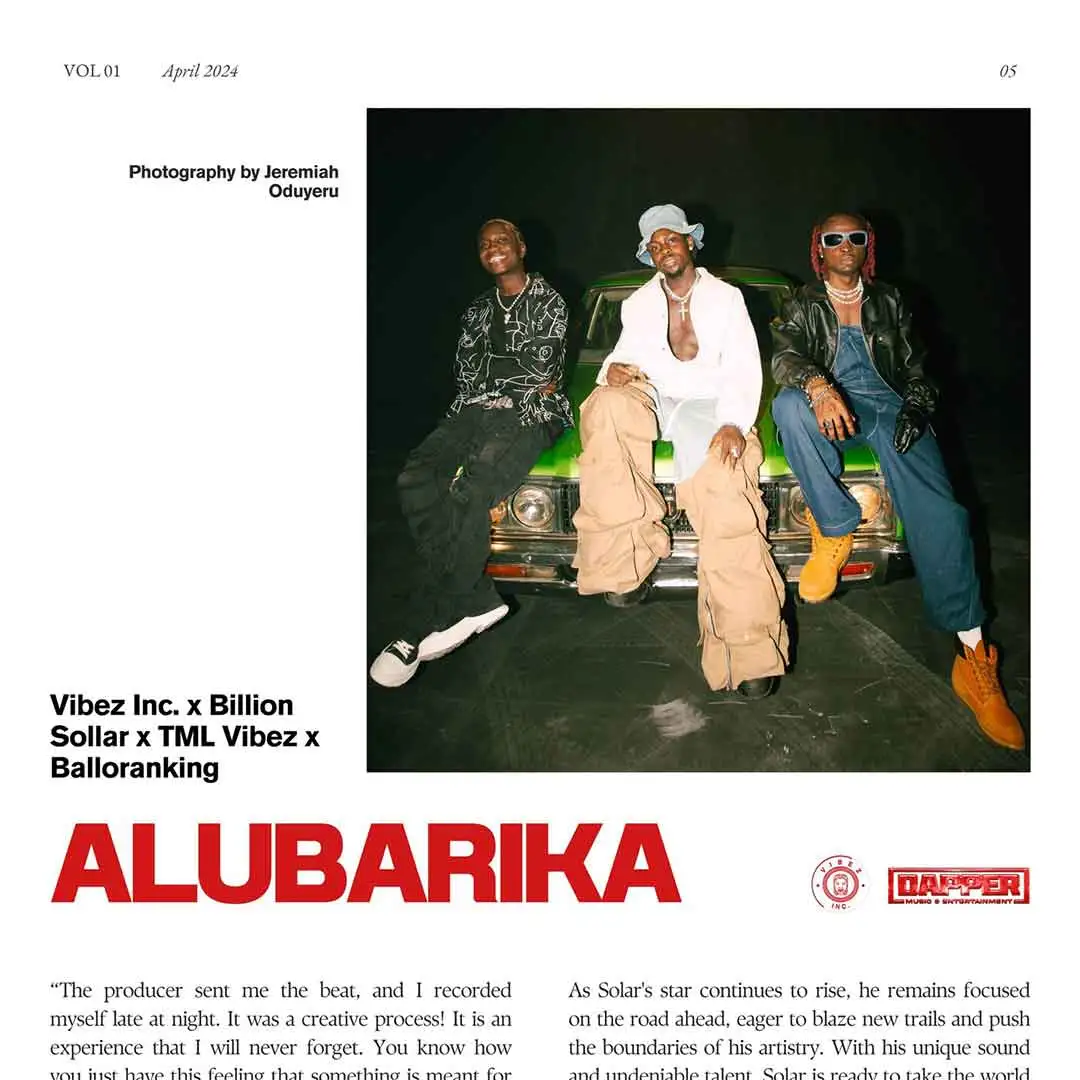Conflicted Destiny - Season 1 Episode 29
.jpg?w=900&ulb=true&ssl=1)
Conflicted Destiny - Season 1 Episode 29
and our humble warrior wakes up with random thoughts…..
**************************
not be verified. It was out of the question to them that I was a Nigerian.
As I planned my next moves, Helen continued to cry. I tried to ignore her and concentrate on my situation, but it was becoming impossible. I felt so bad for her. I walked over and asked why she was crying. She replied that she was from Ghana and her family had invested a lot of money in her trip. They had used all their life savings to get her a fake British passport so she could go to America. The worst part was that she could not return to Ghana—not only because of shame, but because Ghanaian immigration wouldn’t let her into the country without a passport. The Ghanaian authorities would certainly arrest and detain her. I felt so sorry and deeply touched.
I told her not to worry, and then explained my own situation. I informed her that I was going to seek asylum in Rome and urged her to do likewise, but she was so frightened by the whole ordeal that all she wanted was to go home. When she could not be persuaded, I resolved to help anyway. For some unfathomable reason, in spite of my well-thought-out plan, I immediately changed my course of action just so I could rescue this fragile, helpless “African Queen.” I instructed her to tell the Italian authorities that she was a Nigerian, and I would do the same; that way, we’d both be repatriated to Nigeria, and from there, I could get her home. I didn’t foresee any problems getting her through Nigerian immigration, given their corrupt nature. With the right amount of persuasion—money—everything is possible.
So, after spending less than twenty-four hours in Italy, I was en route back to Nigeria. Strangely enough, I neither sad nor did I consider my trip a failure. I had a beautiful lady whom I was helping, and that was all that mattered at the moment. On the plane, Helen’s whole demeanor changed. She opened up and started talking about herself and smiling. She revealed to me that she had a few hundred pounds with her. I rejoiced in my mind, thinking that I would be back in business with her money. Almost immediately I came up with a plan: I would to ask her to give me all her money so that I could continue my business, and would return her money later with interest after a few trips.
Upon landing in Lagos and arriving at immigration, I told them that Helen was my sister and we had both been repatriated from Italy. After negotiating a price with immigration, I ended up bribing them with $100 because they figured out that she wasn’t a Nigerian.
By this time it was already morning in Lagos, but I couldn’t think of where to take Helen. I couldn’t bring her to any of my relatives’ houses in Lagos or Aba, or to my family in Orji Uratta. How could I explain who she was? Finally, I thought of my cousin Ngozi, the eldest daughter of my mother’s older sister, even though we were not the best of friends. When we were younger, living together in my uncle’s house, he had hated her just as much as he hated me, but instead of teaming up with me, she would vent her frustrations on me and wouldn’t feed me. I remembered that she had a two-bedroom apartment in Amaoka, and I decided to take a chance and bring Helen there.
My cousin was surprised to see me—and especially Helen—but she welcomed us. While Helen sat in the living room, Ngozi and I went into the backyard, and I explained the situation. She sympathized with our plight and said that Helen could stay at her apartment until she was able to return to Ghana. Helen was still without travel documents, since the only passport she had was the fake British one that was confiscated in Italy. That meant she had to be patient until I was able to get her a traveling document to return to Ghana.
January 1991 was a memorable month. It started with a bang as the Allied Forces unleashed a counteroffensive against Iraq and launched the largest international cohesion campaign in recent history: Operation Desert Storm, headed by the United States. As a result of the war, security had been tightened in every country, and I suspected this played a significant role in the number of illegal migrants being detained and repatriated from Italy. I would have to be careful about my international travel plans.
After a few days at Ngozi’s place, Helen was more relaxed; her only concern was that she hadn’t spoken to her family and they had no idea where she was. However, Amaoka didn’t have a telephone system, so she couldn’t call them.
By this time, Helen and I had become romantically involved. I cannot remember how or when it happened, but we enjoyed each other’s company and had a lot of fun together. By the end of our first week in Amaoka, I had convinced her to let me borrow all of her money so I could start my business again in Sierra Leone. I promised her that after one trip I would return her money.
I immediately traveled to Aba with the money and bought ladies’ shoes and handbags. As soon as my orders were completed, I traveled to Lagos, and from there, flew with my goods to Sierra Leone. As usual, I had to borrow money to clear my goods since I didn’t have anything left over after my purchases. Naturally, I went back to stay at Ernest’s shop.
My colleagues were very cold to me. They knew that I had ripped Chukwuka off, but the story had been reported differently from how it had really happened. It was said that Chukwuka had given me money to buy goods for him, and I had taken all of it and fled to Italy. They all seemed pleased that I had been repatriated; some even ventured to say that karma had caught up with me. I told them what had really happened: that I did buy the goods for Chukwuka, and the only thing I did wrong was to inflate the price, which I shouldn’t have done. Some of the guys accepted my explanation and said that was the cost of doing business, but others still hated me, including Chukwuka. I pleaded with him many times, asking for his forgiveness. He finally accepted my apology, but refused to have anything to do with me anymore.
I supplied all my goods to my usual customers, and then waited to collect my money so I could return to Nigeria. I got back into my old routine. I ran every day in the morning, read more than three hundred pages of a book every day, and occasionally studied my map to see where the journey would take me next. Although I had told Helen I would return in two weeks, unfortunately this particular trip took longer than I anticipated. Three weeks had passed before I was able to collect all of my money.
When I returned to Nigeria, things were no longer the same with Helen. There was a drastic change in her behavior. I guessed she was frustrated because I didn’t maintain communication with her and she wasn’t sure if I was coming back. Even though my cousin looked after her and took proper care of her, she was still very angry with me. I noticed that she had a burn on her leg and had become friendly with a male neighbor. I also learned that she had been spending an unusual amount of time at his place. When I asked her about it, she explained that they were just friends and he had been teaching her how to ride a motorcycle, resulting in the burn on her leg. This man had also helped her find a place in Amaoka where she was able to make a phone call to her family in Ghana.
I did my best to appease her and make her understand that I didn’t intentionally abandon her, but she had made up her mind about me. A few days later I was able to obtain a laissez-passer (travel document) for her. I returned her money and took her to Lagos, where she boarded a bus back to her country. Before she left, she gave me her aunt’s address in Ghana and said I could visit her there whenever I wanted. I wasn’t satisfied with the way things had ended between us, so I promised myself that I would go to Ghana in the next few months and make amends. I returned to Aba and continued my business. Fortunately, I was able to make sufficient profit with Helen’s money, so I bought enough goods and returned to Sierra Leone.
A few months later, I decided to visit Helen. I took the bus to save money, and after seven hours, we arrived in Accra, the capital city of Ghana. I took a taxi to her aunt’s address. Helen wasn’t home, but her aunt warmly welcomed me into their three-bedroom apartment and thanked me for everything I did for Helen. She told me that their entire family was grateful. Later that evening, Helen returned and didn’t seem too pleased to see me. I tried to ask her what was wrong, and if she was unhappy that I came to visit. She said she was glad to see me, but her attitude was less than friendly. The next two days she showed me around Accra and informed me that she was about to leave for Canada. Her family had made the arrangements—with another fake passport, of course.
After three days I realized that I couldn’t make amends for whatever might have been transpired between us in Nigeria. I decided to cut my losses and move on with my life. Helen was more than eager to see me go, but her family, who had grown fond of me, was a little sad that I was leaving so soon.
I continued shuttling between Nigeria and Sierra Leone with my goods. Though I was making a profit, it was still too little because of the huge expenses involved in traveling. Some of my friends started making fun of me, nicknaming me the “Carry-On Businessman” because I would always try to carry half of my goods on board as carry-on luggage since I couldn’t afford to pay freight for them. But I didn’t care. The most important thing was that I was independent and able to sustain my family.
There were a few remarkable things happening in Sierra Leone at the time. There was the influx of goods and property, apparently stolen from war-torn Liberia. Everybody was involved in this illicit business, even the ECOMOG troops who were sent there to keep the peace. Also, different factions in Liberia were profiting from the conflict—particularly Prince Y. Johnson, who was controlling Bushrod Island, Monrovia, and was shipping vehicles and other items from Monrovia to Sierra Leone to sell in order sustain his group. I was surprised to learn he was doing this with the help of a Nigerian, my old friend Ngozi, who had taken money from investors. She and Johnson were lovers; she cooked for him and his rebel group. Indeed, Ngozi was a smart businesswoman and had been helping him with all his illicit business activities, including blood diamonds that were shuttled between Liberia and Sierra Leone.
Gradually the war in Liberia started to spill into Sierra Leone. There was a lot of cross-border incursion by rebel groups. The border between the two countries was richly endowed with diamonds and gold; therefore, the rebels in Liberia had kept a vigilant eye on these mining communities in Sierra Leone, realizing what occupying these strategic communities could mean in terms of funding to sustain their activities. As time went on, Liberian fighters moved into Sierra Leone and occupied the mining communities. But they didn’t stop there. They also started training Sierra Leonean fighters, who eventually aided the rebel fighters with the fighting in Liberia—and then these same Sierra Leoneans were later sent home to start their own rebel group, with the intention of destabilizing their own country. The mining area of Kenema and its surroundings became a battleground in Sierra Leone. The brutality and atrocities that were perpetrated in these mining communities were absolutely despicable. Tension and uncertainty grew day by day in my country of sanctuary. It seemed like the war kept following me everywhere I went. I wanted to get away from Africa as fast as I could, and by any means necessary.
One day while at Ernest’s shop, as I waited to collect the money for supplying my goods, a cold chill ran through my body and down to my feet. It paralyzed me. I became confused and started hallucinating. My heart was racing, images were flashing through my mind, and I was hearing voices. I had no idea what was happening. I got scared and had the urge to run, but I didn’t know where to go. There was nobody in the shop, so I rushed over to my friend Abigail’s house. Fortunately, her mother was home. Crying, I told her what was going on with me. I kept thinking, I’m too young to die. I’m only twenty years old and I cannot go crazy, especially not here in Africa when I still have some traveling to do.
Abigail’s mother took me to their pastor so they could pray for me. She belonged to a religious sect that had a weird way of worshipping. They used candles, invocations, and chanting, and walked around the church barefoot, wearing long white dresses. As soon as I saw the pastor, I was petrified. He had long dreadlocks and deep, piercing red eyes. The room was filled with candles and incenses. I was absolutely convinced that if the pastor prayed for me, I would go crazy, if I wasn’t already. I turned around and told Abigail’s mother that I was okay, and there was no need to go on with the prayers. She didn’t insist, and we walked back to the shop.
The next few days were the most difficult time in my life. I couldn’t tell any of my friends what was going on with me; I didn’t want them to think I was going crazy. I became more delusional and stopped reading, thinking that my problem might have emanated from reading too much. My brain was constantly on fire and my head seemed like it was about to explode. I kept hearing voices, and gradually life began to appear meaningless. All I could think was that I was going to die. If I had a gun, I would have blown my head off just to make the voices stop. As the days went by, I became more determined to self-diagnose whatever was happening to me. I even began to wonder if somebody might be manipulating me through voodoo. Maybe people that I had wronged somewhere along the line had decided to get back at me.
Eventually, I came to the conclusion that the best thing to do was to try and make amends with every single person I had ever wronged in my life. I started with Chukwuka. I apologized to him once again, and he accepted and affirmed that he had forgiven me. I returned to Nigeria and went straight to Orji Uratta. When my mother and grandmother saw me, they knew that something was wrong. I told them what was happening to me, and my mother started yelling, “The Blood of Jesus!” She said that the devil was fighting a battle against me, but he would not succeed. My mother and grandmother proceeded to fast for several days. Later, my mother insisted that I had to go see our pastor and confess all of my sins, which I did. She also advised me to contact all the people that I ever wronged and apologize to them. Meanwhile, my sickness only got worse. I was rapidly losing my body and mind. It was unbearable. It seemed as if there was a crazy person inside my body trying to control me.
My mother also wanted me to pay back my uncle for the money I had made by selling the aluminum zinc from his property, so we traveled to Aba to see him. I apologized profusely, telling him I was wrong and asking him to forgive me. I returned the money, but he wouldn’t accept it. He said he had forgiven me. My mother and I pleaded with him to take the money, but he refused, saying he didn’t need it.
We returned to Owerri Nkworji, where my mother and siblings moved because the new house there had finally been completed, and there were two rooms for them to stay in. I had been there for a month and was still battling with my demons. My grandmother Nwanyi Burunnu was sad. Through her powers she already knew I was sick; even before I had returned to Nigeria, she had been going to a person she called a prophet to pray for my survival. She told me someone was after me, but as long as she lived, they would not succeed. I was restless and was doing everything possible so the sickness would leave me. I even had a dry fast for two days, yet I was not getting better. I didn’t want to give up, and was determined that I would not die in Africa. So I resolved to do everything possible to stay alive.
By this time, my mother’s elder sister, who had been living in Mbasi with her husband, the pastor, had moved to the town of Umuahia. Her husband had been promoted from associate pastor to regular pastor, and as a result they were relocated to a bigger church. I went to stay with them in Umuahia, thinking that proximity to a holy place might help in deterring my demons. My aunt’s family was pleased to have me and they prayed for me. My cousin, Mercy, did everything possible to make me comfortable; she realized that I needed someone to talk to me all the time in order to drown out the voices in my head, so she wouldn’t leave me alone. Per tradition, the whole family would wake up early in the morning and pray; we would also pray before going to sleep every night. There was also a daily church service. I become deeply immersed in religion. Sometimes, I slept in the church just to scare the devil away from me. I would get a few minutes of respite, and then the battle would continue. At other times, I would just lie under the sun and stare into it, hoping that God would radiate some magical power into me that would cure me from the demonic attack. Still, I did not get better. I became even more restless. Finally, I decided to go back to Owerri Nkworji.
*****************************
[ads4]
To Be Continued….

.png?w=300&ulb=true&ssl=1)
.jpg?w=300&ulb=true&ssl=1)
.jpg?w=300&ulb=true&ssl=1)




![Deaw Special Super Soft Power (2024) [Thai]](https://www.memesng.com/r/storage.waploaded.com/images/b675bcd2729ccacc87521af7756011eb.jpg?w=50&ulb=true&ssl=1)
![Free Money (2023) [Estonian]](https://www.memesng.com/r/storage.waploaded.com/images/078db976c9c922a1c9c18a9a032b6c2b.jpg?w=50&ulb=true&ssl=1)













![Ninja Kamui (2024) [Japanese] (TV series)](https://www.memesng.com/r/storage.waploaded.com/images/269fcbec2b9d7d5506a919f192f2e61d.jpg?w=50&ulb=true&ssl=1)
![The Escape of the Seven Resurrection (2024) [Korean] (TV series)](https://www.memesng.com/r/storage.waploaded.com/images/2a7d90cddc2687327a1fdc3bef1e6d2e.jpg?w=50&ulb=true&ssl=1)
![Beauty and Mr Romantic (2024) [Korean] (TV series)](https://www.memesng.com/r/storage.waploaded.com/images/ecd8a3a73377eece67c71f1551596799.jpg?w=50&ulb=true&ssl=1)
{{comment.anon_name ?? comment.full_name}}
{{timeAgo(comment.date_added)}}
{{comment.body}}
{{subComment.anon_name ?? subComment.full_name}}
{{timeAgo(subComment.date_added)}}
{{subComment.body}}